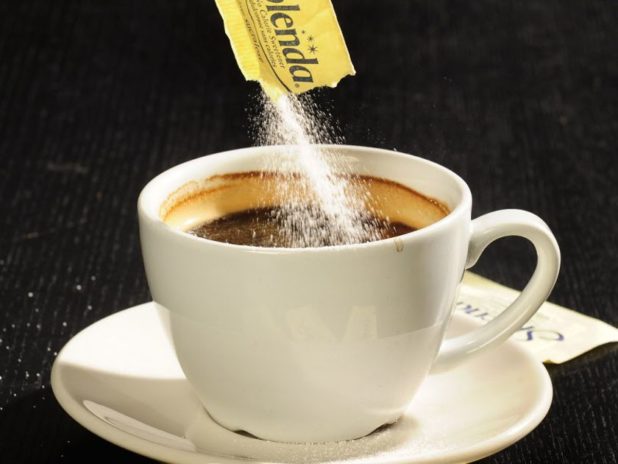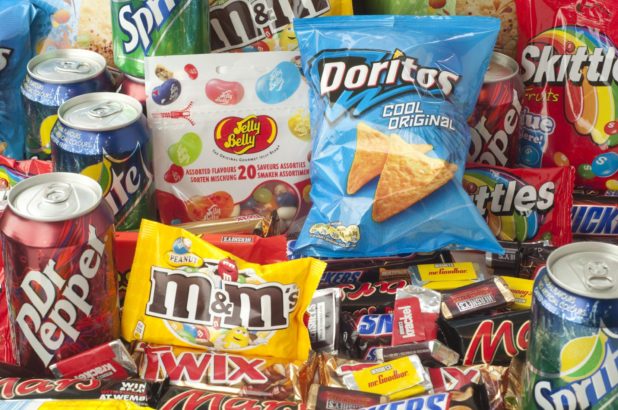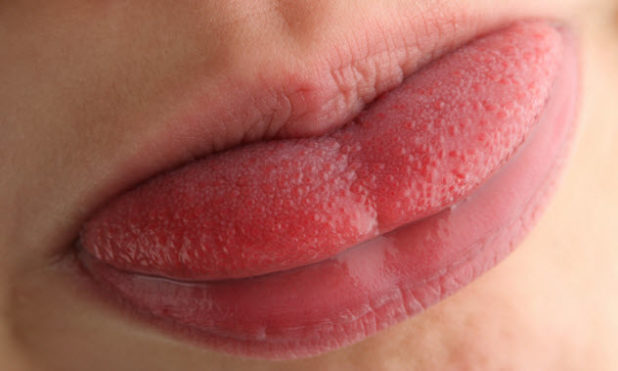Pomidor Quixote
Daily Stormer
March 12, 2020
Tricking your brain into thinking that you’re eating something sweet appears to have unintended consequences.
A study published in the journal Cell Metabolism by a group of Yale researchers found that the consumption of the common artificial sweetener sucralose (which is found in Splenda, Zerocal, Sukrana, SucraPlus and other brands) in combination with carbohydrates can swiftly turn a healthy person into one with high blood sugar.
From whole grain English muffins to reduced-sugar ketchup, sucralose is found in thousands of baked goods, condiments, syrups and other consumer packaged goods – almost all of them containing carbs.
The finding, which researchers noted has yet to be replicated in other studies, raises new questions about the use of artificial sweeteners and their effects on weight gain and overall health.
In the Yale study, researchers took 60 healthy-weight individuals and separated them into three groups: A group that consumed a regular-size beverage containing the equivalent of two packets of sucralose sweetener, a second group that consumed a beverage sweetened with table sugar at the equivalent sweetness, and a third control group that had a beverage with the artificial sweetener as well as a carbohydrate called maltodextrin.
The molecules of maltodextrin don’t bind to taste receptors in the mouth and are impossible to detect. While the sensation of the third group’s beverage was identical to the sucralose-only group, only this group exhibited significant adverse health effects.
The artificial sweetener by itself seemed to be fine, the researchers discovered, but that changed when combined with a carbohydrate. Seven beverages over two weeks and the previously healthy people in this group became glucose intolerant, a metabolic condition that results in elevated blood glucose levels and puts people at an increased risk for diabetes.
The finding follows a study in the journal JAMA Internal Medicine last year that found that consumption of two or more glasses of artificially sweetened soft drinks a day increased deaths from circulatory diseases. And a 2008 study by scientists at Purdue University showed that artificial sweeteners alone could result in higher blood pressure, weight gain, and increased risk of diabetes, stroke and heart disease in rats.
Ingesting mystery chemicals because they trick your mind into thinking you’re tasting something sweet is a bad idea on many different levels.
This situation where people want to eat “diet” stuff full of chemicals, hoping to lose fat or to prevent fat gain, is only possible in a sick culture of overabundance and overexcitement that has turned food into addictive products.
Pictured: drugs.
Hunger has been mixed with anxiety.
People eat and eat and eat and barely get any meaningful nutrition, then they look forward to the next meal that will hyper-stimulate their taste buds.
Food products work like drugs.
People build tolerance to the level of taste-excitement they provide, and then they enter a vicious cycle of looking for the next great flavor, fueled by their need for actual nutrients.
Pictured: a junkie.
We should be eating the food that people from more than a hundred years ago would have recognized as foods.
Real food.
 Daily Stormer The Most Censored Publication in History
Daily Stormer The Most Censored Publication in History







